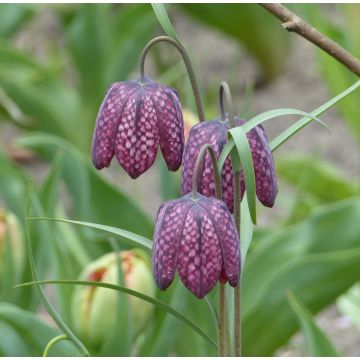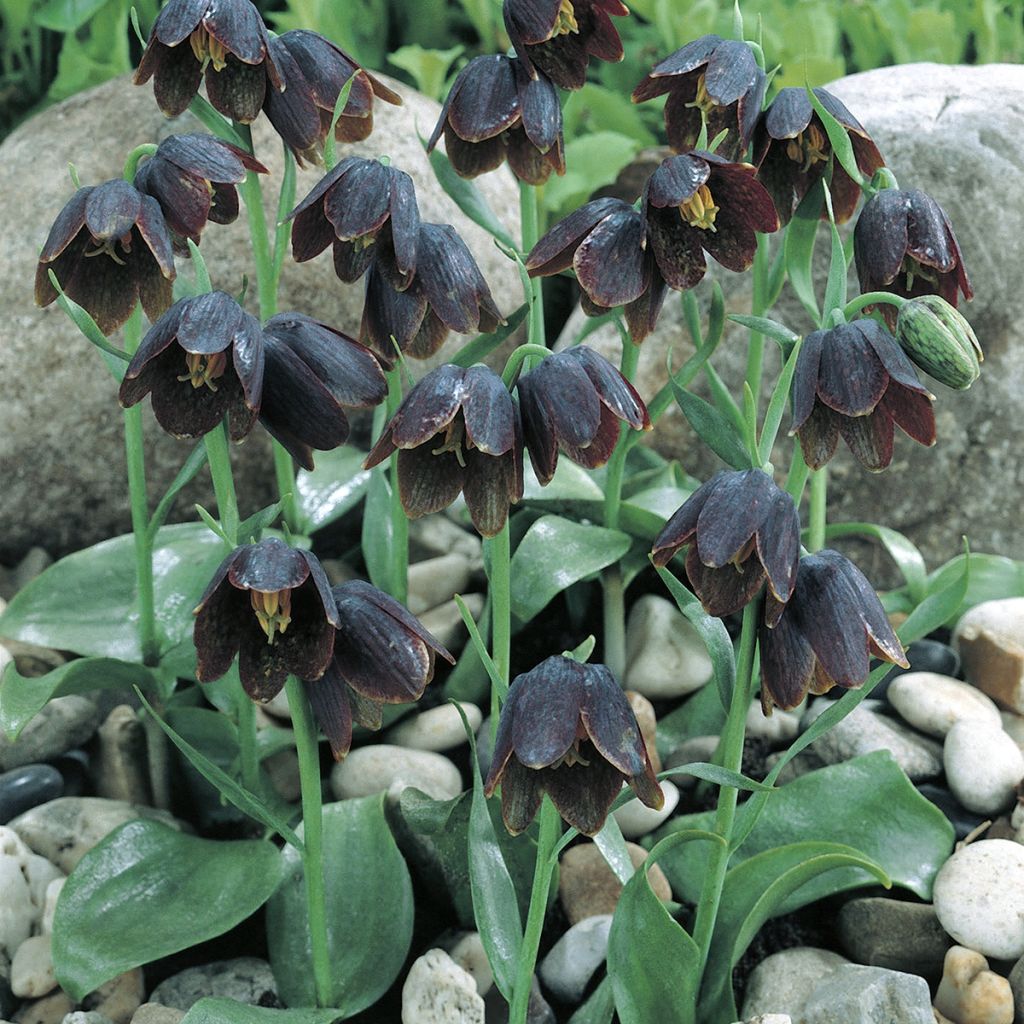

Fritillaria davisii - Fritillaire botanique
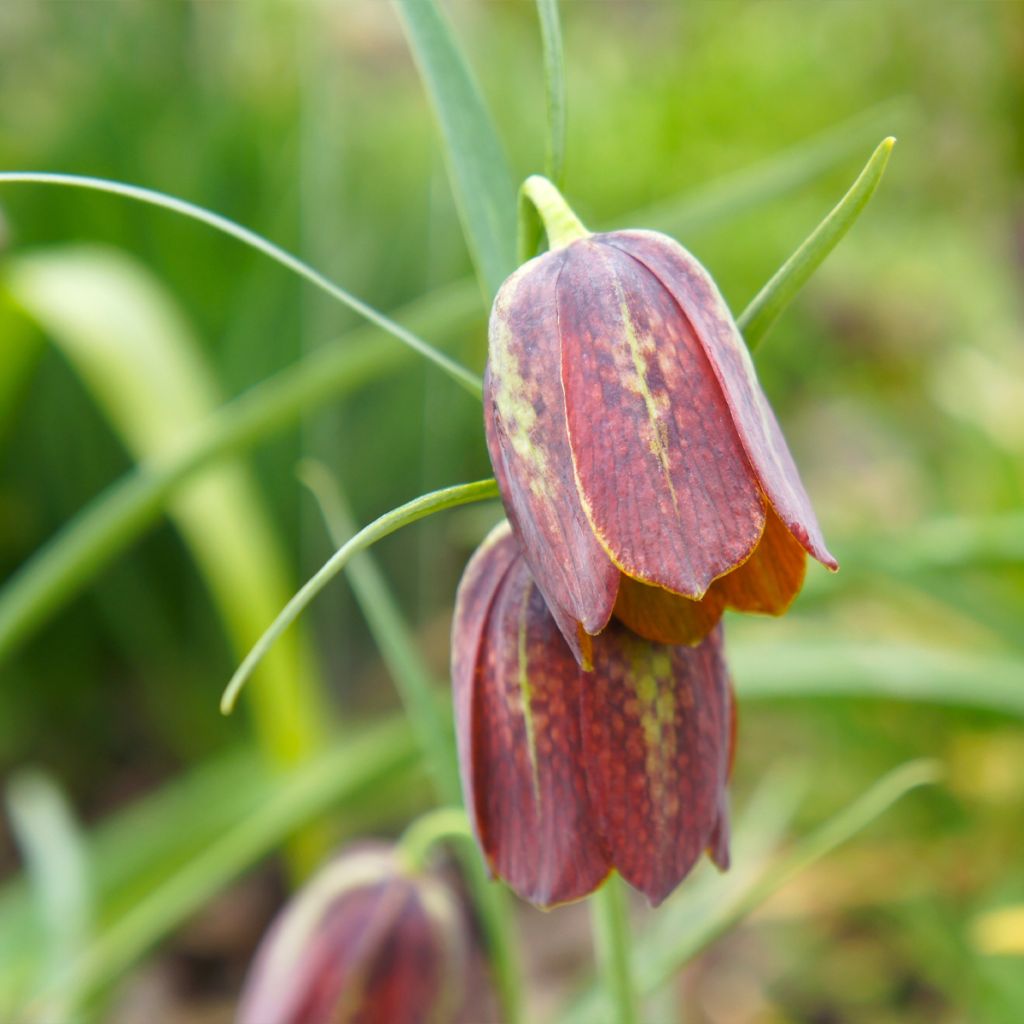

Fritillaria davisii - Fritillaire botanique
View more pictures
Hide images
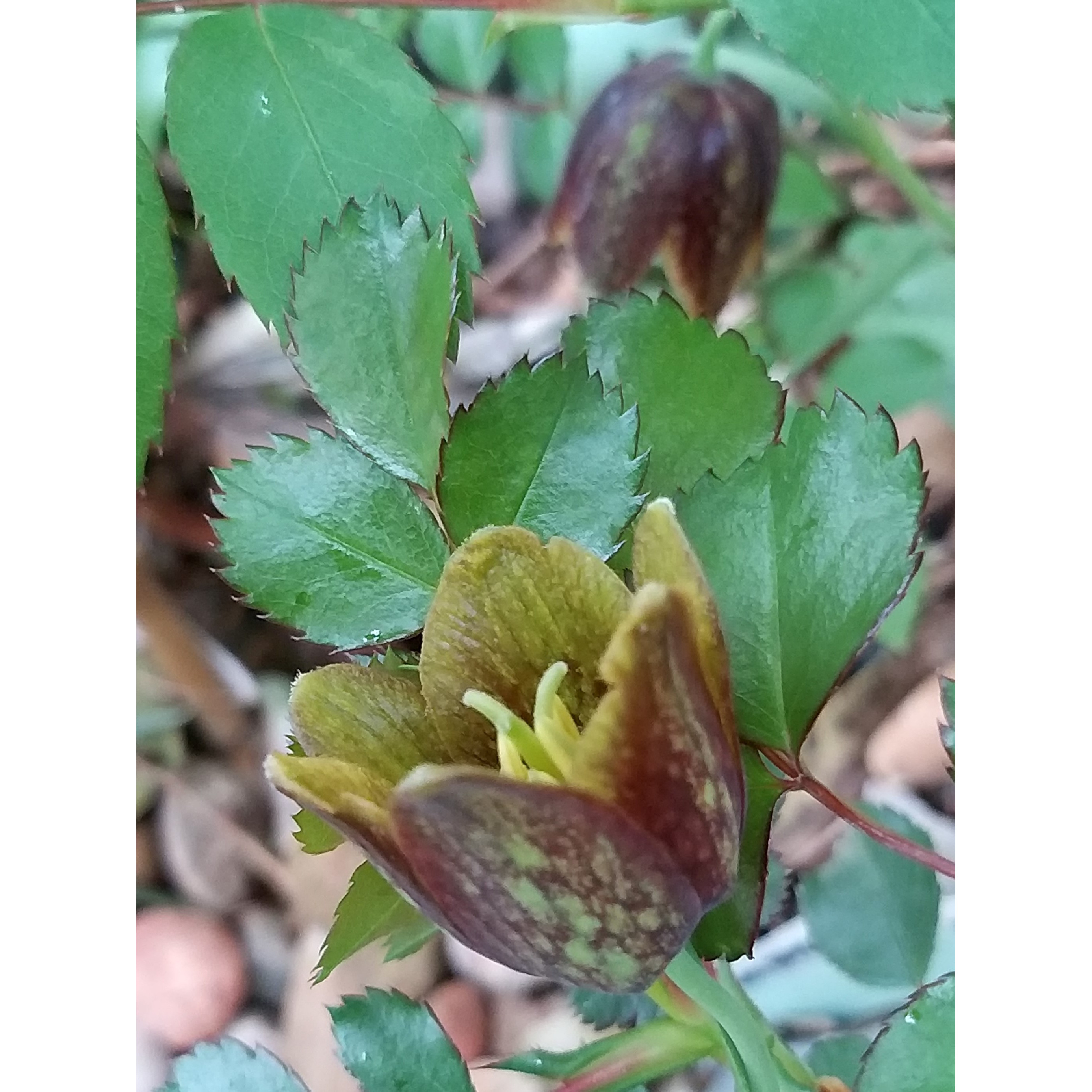
Thierry P.

March flowering - image 3
Thierry P. • 84 FR
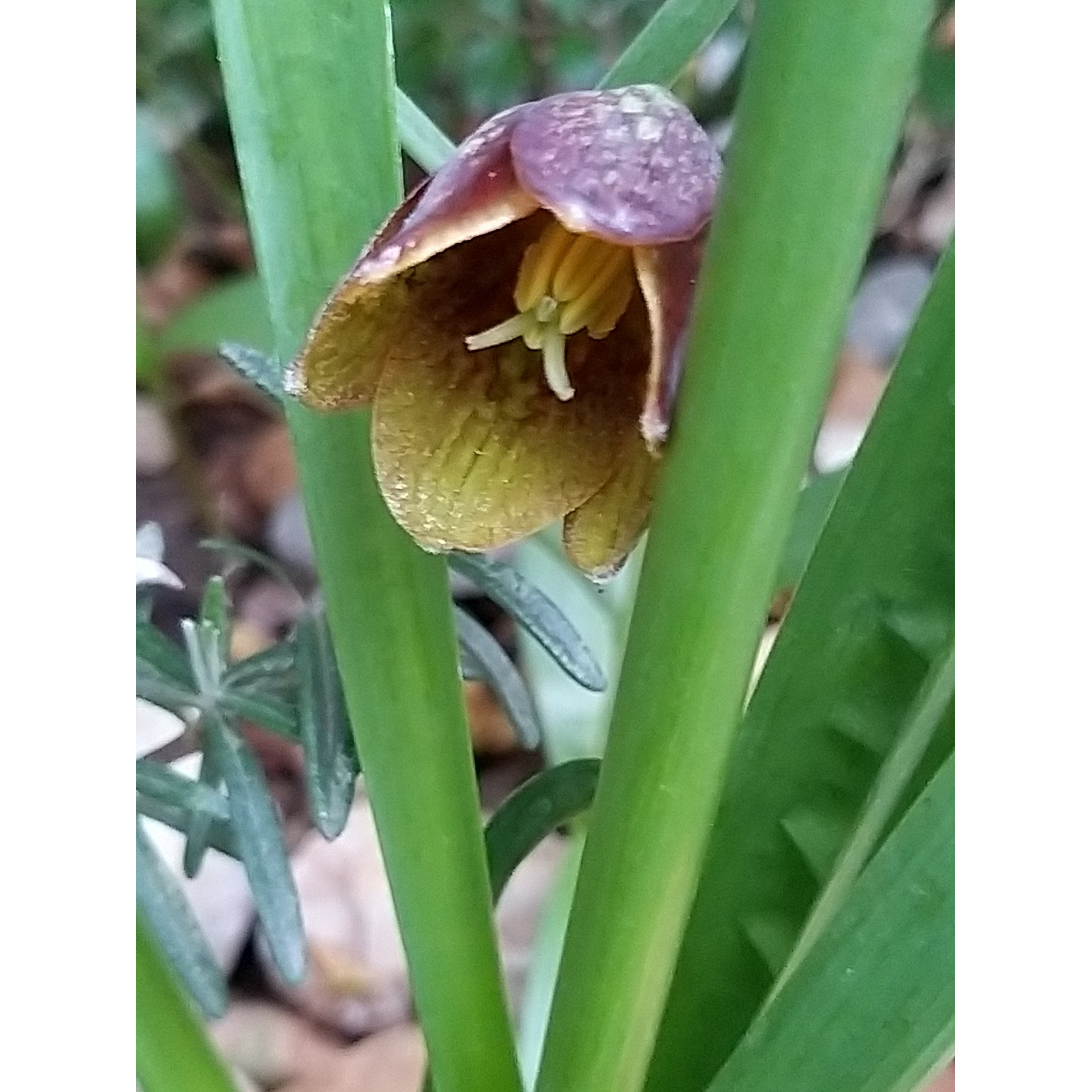
Thierry P.

March flowering - image 1 - Close to a rosemary.
Thierry P. • 84 FR
Fritillaria davisii
Fritillaria davisii
Davis fritillary
Thanks to the individuals (order preparation & shipping service), the 15 bulbs received are healthy. Planted close to white roses, I am now looking forward to seeing their progress...
Thierry, 21/10/2021
Special offer!
Receive a €20 voucher for any order over €90 (excluding delivery costs, credit notes, and plastic-free options)!
1- Add your favorite plants to your cart.
2- Once you have reached €90, confirm your order (you can even choose the delivery date!).
3- As soon as your order is shipped, you will receive an email containing your voucher code, valid for 3 months (90 days).
Your voucher is unique and can only be used once, for any order with a minimum value of €20, excluding delivery costs.
Can be combined with other current offers, non-divisible and non-refundable.
Why not try an alternative variety in stock?
View all →This plant carries a 6 months recovery warranty
More information
We guarantee the quality of our plants for a full growing cycle, and will replace at our expense any plant that fails to recover under normal climatic and planting conditions.
Would this plant suit my garden?
Set up your Plantfit profile →
Description
The Fritillaria davisii is a wild fritillary native to Greece, which is rather hardy and adapts quite easily to gardens as long as it is planted in well-drained soil that dries out in summer. It is characterized by pendulous bell-shaped flowers with a waxy texture, dark purple-brown on the outside and yellow-green on the inside. As a beautiful spring surprise, it will bloom in rock gardens, raised beds, and even in a lovely pot on the terrace.
The Fritillaria davisii belongs to the Liliaceae family. It is native to the southern Peloponnese, specifically the Mani Peninsula, where it can be found at very low altitudes in olive groves and low scrubland on limestone soil. It is well adapted to the Mediterranean climate and can withstand cold temperatures down to -15°C (5°F) in well-drained, not too wet soil. To flower well, its bulb needs a fairly dry and warm summer.
This fritillary develops from a small scaly bulb measuring 2 cm (1in) in diameter. The foliage emerges from the ground in late winter. It consists of two shiny, lanceolate leaves, often quite wide, that rest on the ground. Flowering occurs in March-April, sometimes in May, depending on the climate. Each 15 cm (6in) tall flower stem bears one to three broadly campanulate flowers, hanging downward and emitting a sweet fragrance. Each flower is composed of petals that are dark purple-brown on the outside, usually unstriped, while the interior of the corolla is yellowish-green with a paved pattern of dark purple-brown. After pollination, a cylindrical and erect fruit forms, which will release numerous flat seeds when ripe. The above-ground vegetation of the fritillary disappears in summer as the plant enters a period of dormancy. During this time of year, the soil should be rather dry.
As unique as the Guinea Fowl Fritillary, which is much better known, Davis's fritillary is better suited to southern gardens and hot summers. Give it a small spot in a rock garden or a bed with soil that doesn't retain too much water, neither in winter nor in summer. This bulbous plant, which doesn't tolerate much competition, naturally pairs well with other spring-flowering bulbs such as tulips or botanical narcissus. It can also be paired with dwarf or intermediate bearded irises. Beautiful pots can also be composed with its bulbs, allowing for a close-up view of the flowers and providing protection from excessive moisture in both winter and summer.
Another advantage of fritillaries is that their bulbs emit an odor that repels rodents, especially moles. They will therefore protect your tulip bulbs from their attacks without bothering you; the odor is imperceptible once the bulb is planted.
Report an error about the product description
Plant habit
Flowering
Foliage
Botanical data
Fritillaria
davisii
Liliaceae
Davis fritillary
Mediterranean
Planting and care
The Davis's Fritillary particularly thrives in a Mediterranean climate, with mild and humid winters and dry and hot summers, although it tolerates cold well in well-drained soil. It can be planted in full sun in regions, but prefers partial shade in the south. Plant it in fertile and well-drained soil. Avoid soil that is too acidic or heavy; if drainage is insufficient, the fritillary may rot, both in winter and in summer. Plant as soon as possible, from September to October, by adding sand, gravel or pumice to the planting hole and planting in a raised bed (a 25 cm (10in) elevation is sufficient). Place the bulb at a depth of 8 cm (3in), slightly tilting it so that its core does not collect rainwater. In winter, we recommend mulching the fritillary, not only to protect it from the cold, but also from excessive moisture. Remove faded flowers if you do not want them to self-seed. Do not water your fritillaries in summer and winter. If the soil is too dry in spring, lightly water to start the bulb, but always without excess.
Planting period
Intended location
Care
-
, onOrder confirmed
Reply from on Promesse de fleurs
Haven't found what you were looking for?
Hardiness is the lowest winter temperature a plant can endure without suffering serious damage or even dying. However, hardiness is affected by location (a sheltered area, such as a patio), protection (winter cover) and soil type (hardiness is improved by well-drained soil).

Photo Sharing Terms & Conditions
In order to encourage gardeners to interact and share their experiences, Promesse de fleurs offers various media enabling content to be uploaded onto its Site - in particular via the ‘Photo sharing’ module.
The User agrees to refrain from:
- Posting any content that is illegal, prejudicial, insulting, racist, inciteful to hatred, revisionist, contrary to public decency, that infringes on privacy or on the privacy rights of third parties, in particular the publicity rights of persons and goods, intellectual property rights, or the right to privacy.
- Submitting content on behalf of a third party;
- Impersonate the identity of a third party and/or publish any personal information about a third party;
In general, the User undertakes to refrain from any unethical behaviour.
All Content (in particular text, comments, files, images, photos, videos, creative works, etc.), which may be subject to property or intellectual property rights, image or other private rights, shall remain the property of the User, subject to the limited rights granted by the terms of the licence granted by Promesse de fleurs as stated below. Users are at liberty to publish or not to publish such Content on the Site, notably via the ‘Photo Sharing’ facility, and accept that this Content shall be made public and freely accessible, notably on the Internet.
Users further acknowledge, undertake to have ,and guarantee that they hold all necessary rights and permissions to publish such material on the Site, in particular with regard to the legislation in force pertaining to any privacy, property, intellectual property, image, or contractual rights, or rights of any other nature. By publishing such Content on the Site, Users acknowledge accepting full liability as publishers of the Content within the meaning of the law, and grant Promesse de fleurs, free of charge, an inclusive, worldwide licence for the said Content for the entire duration of its publication, including all reproduction, representation, up/downloading, displaying, performing, transmission, and storage rights.
Users also grant permission for their name to be linked to the Content and accept that this link may not always be made available.
By engaging in posting material, Users consent to their Content becoming automatically accessible on the Internet, in particular on other sites and/or blogs and/or web pages of the Promesse de fleurs site, including in particular social pages and the Promesse de fleurs catalogue.
Users may secure the removal of entrusted content free of charge by issuing a simple request via our contact form.
The flowering period indicated on our website applies to countries and regions located in USDA zone 8 (France, the United Kingdom, Ireland, the Netherlands, etc.)
It will vary according to where you live:
- In zones 9 to 10 (Italy, Spain, Greece, etc.), flowering will occur about 2 to 4 weeks earlier.
- In zones 6 to 7 (Germany, Poland, Slovenia, and lower mountainous regions), flowering will be delayed by 2 to 3 weeks.
- In zone 5 (Central Europe, Scandinavia), blooming will be delayed by 3 to 5 weeks.
In temperate climates, pruning of spring-flowering shrubs (forsythia, spireas, etc.) should be done just after flowering.
Pruning of summer-flowering shrubs (Indian Lilac, Perovskia, etc.) can be done in winter or spring.
In cold regions as well as with frost-sensitive plants, avoid pruning too early when severe frosts may still occur.
The planting period indicated on our website applies to countries and regions located in USDA zone 8 (France, United Kingdom, Ireland, Netherlands).
It will vary according to where you live:
- In Mediterranean zones (Marseille, Madrid, Milan, etc.), autumn and winter are the best planting periods.
- In continental zones (Strasbourg, Munich, Vienna, etc.), delay planting by 2 to 3 weeks in spring and bring it forward by 2 to 4 weeks in autumn.
- In mountainous regions (the Alps, Pyrenees, Carpathians, etc.), it is best to plant in late spring (May-June) or late summer (August-September).
The harvesting period indicated on our website applies to countries and regions in USDA zone 8 (France, England, Ireland, the Netherlands).
In colder areas (Scandinavia, Poland, Austria...) fruit and vegetable harvests are likely to be delayed by 3-4 weeks.
In warmer areas (Italy, Spain, Greece, etc.), harvesting will probably take place earlier, depending on weather conditions.
The sowing periods indicated on our website apply to countries and regions within USDA Zone 8 (France, UK, Ireland, Netherlands).
In colder areas (Scandinavia, Poland, Austria...), delay any outdoor sowing by 3-4 weeks, or sow under glass.
In warmer climes (Italy, Spain, Greece, etc.), bring outdoor sowing forward by a few weeks.






























